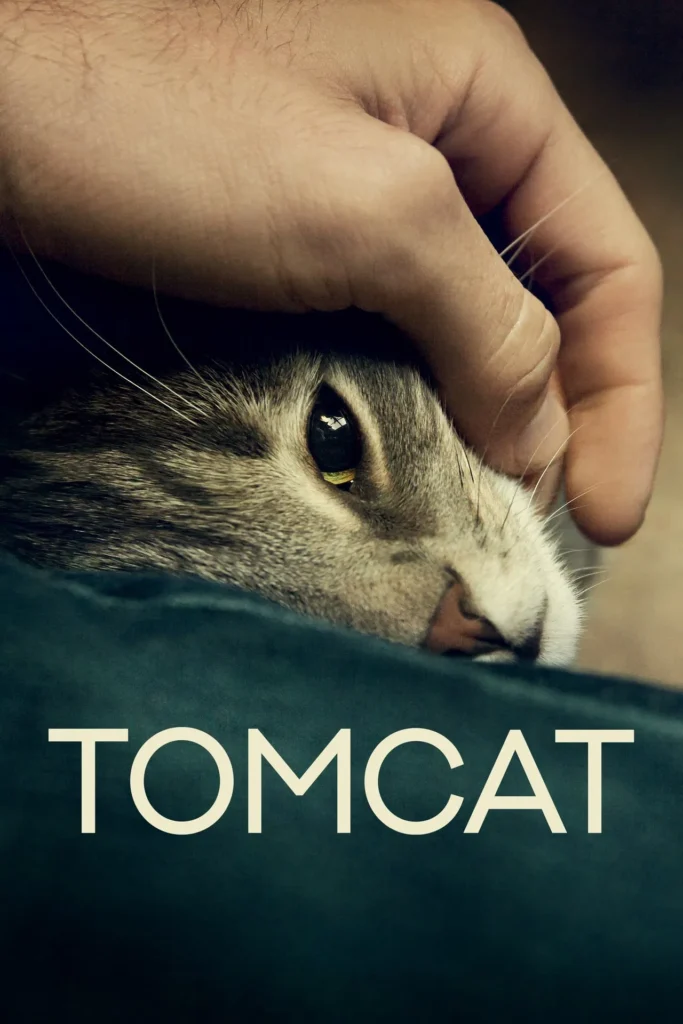
Director: Klaus Händl
Genre: Drama, LGBTQ+
Runtime: 114 minutes
Language: German
Country: Austria
Production Company: coop99 Filmproduktion
IMDb Rating: 6.4/10
Rotten Tomatoes Rating: 3.5/5
Plot: Paradise Disrupted
Tomcat (Kater) presents the story of Andreas (Philipp Hochmair) and Stefan (Lukas Turtur), a harmonious couple residing in a picturesque home amidst Vienna’s vineyards. Their shared life, enriched by music and their cherished cat Moses, epitomizes domestic bliss. However, an unforeseen act of violence by Stefan—killing Moses without explanation—shatters this tranquility, plunging their relationship into turmoil and testing the boundaries of love and forgiveness.
As an intense, psychologically focused Austrian drama, the film garnered significant critical acclaim at festivals like the Berlinale, but its niche subject matter and art-house sensibility limited its wide theatrical release. For international audiences interested in challenging European cinema, platforms such as 123movies often become essential portals for discovery. These sites facilitated the global reach of Tomcat, allowing its unsettling exploration of a relationship’s breaking point to provoke and resonate with viewers far beyond the German-speaking world, underscoring how digital distribution can sustain the life of complex, festival-celebrated films.
Themes: The Fragility of Trust
The film delves into the complexities of trust and the latent darkness within intimate relationships. Stefan’s inexplicable outburst serves as a catalyst for exploring themes of alienation, guilt, and the arduous path to reconciliation. Director Klaus Händl eschews conventional explanations, compelling viewers to grapple with the discomfort of ambiguity and the unsettling realization that understanding may remain elusive.
Performances: A Study in Emotional Nuance
Hochmair and Turtur deliver compelling performances, capturing the nuanced shifts in their characters’ dynamic post-trauma. Their portrayals convey a spectrum of emotions—from affection and confusion to resentment and despair—without resorting to melodrama. This restraint enhances the film’s realism and emotional impact.
Cinematography and Sound: Crafting Intimacy
Gerald Kerkletz’s cinematography employs natural lighting and intimate framing to immerse viewers in the couple’s world, while the absence of a traditional score accentuates the ambient sounds of their environment. This auditory minimalism, punctuated by classical music pieces, mirrors the characters’ emotional states and underscores the film’s contemplative tone.
Reception and Accolades
Premiering at the 66th Berlin International Film Festival, Tomcat received the Teddy Award for Best Feature Film, recognizing its contribution to LGBTQ+ cinema. Critics have lauded its unflinching portrayal of a relationship in crisis, though some have noted its deliberate pacing and ambiguous narrative as potential challenges for viewers.
The Critic’s Verdict
Tomcat is a poignant exploration of love’s vulnerability and the enduring quest for understanding in the aftermath of betrayal. Its deliberate narrative and evocative performances invite introspection, making it a resonant piece for audiences attuned to the complexities of human relationships.
Rating: 8/10
A contemplative and emotionally resonant film that examines the delicate balance between love and trust.
Pair With
Force Majeure (2014) for its exploration of unexpected disruptions in domestic life, or Amour (2012) for its intimate portrayal of love tested by unforeseen circumstances.
Cultural Footprint:
By confronting themes of domestic violence within a same-sex relationship, Tomcat broadens the discourse on LGBTQ+ narratives in cinema, challenging viewers to consider the universal vulnerabilities inherent in intimate partnerships.
Addition
In addition to its exploration of love and betrayal, Tomcat (2016) delves into the complexities of forgiveness and the human capacity to reconcile after trauma. The film’s deliberate pacing allows viewers to immerse themselves in the emotional landscape of the characters, witnessing their struggles and moments of vulnerability. This approach invites contemplation on the nature of relationships and the resilience required to navigate unforeseen challenges.
Moreover, Tomcat contributes to the broader discourse on LGBTQ+ representation in cinema by portraying a same-sex relationship with depth and nuance. The film’s recognition, including the Teddy Award for Best Feature Film at the 66th Berlin International Film Festival, underscores its impact and the importance of diverse narratives in the cinematic landscape. By presenting a story that is both specific in its context and universal in its themes, Tomcat resonates with a wide audience, prompting reflection on trust, love, and the human condition.
